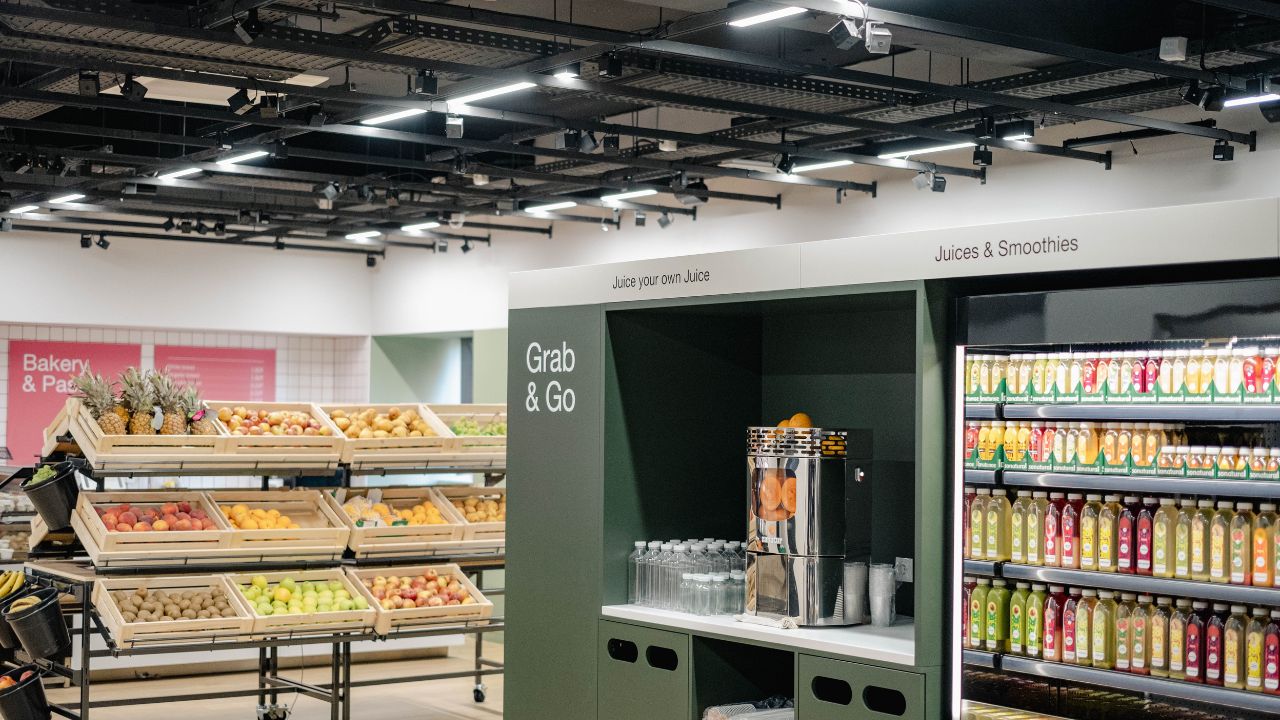This week the 'future of supermarket shopping' arrived in Lisbon as Sensei launched its test-bed autonomous store.
The 500-square-metre Sensei 'Dojo' was created with Hewlett Packard Enterprise – not open to the public, the facility will be used as a test lab for friction-free shopping on a grander scale.
“This cutting-edge facility proves autonomous store technology can work in larger store formats and shows what grocery shopping will be like for millions of people globally within the next five years. This is what all supermarkets will look like in future,” says Vasco Portugal, CEO and co-founder of Sensei.
If you are wondering what friction free shopping is, you’d be forgiven for thinking it’s wandering around your local supermarket in baggy pants and a comfortable top – the frictionless part is the removal of the checkouts.
If, like many of us, you’re worried that the casual exchange of pleasantries you might seek, by going to the supermarket checkout, will leave a hole in your shopping experience, Portugal assures us that there will still be someone on the shop floor to fill the gap in human connection.
“The technology doesn’t turn the store unmanned, there’s people actually working there. The thing is, the job of those people is now more attending to the customers - not necessarily doing mechanical work like spending eight hours scanning products sitting at the checkout,” he says. "The focus is on the customer and not just scanning products.”
The Dojo store tests new features including gate-less entry and exit, and an automatic card payment terminal where purchases are displayed in real-time at the end of a shop. Customers can shop without having to use an app.
The counters like the bakery, butchers or fish counter will still be assisted. Items from these counters, as well as from self-service coffee and juice machines, will be able to be tracked just like the items taken by customers directly from shelves, fridges, freezers, and fresh produce aisles.

“Imagine that an autonomous store - or at least the way we see it – it’s kind of a 'community pantry'. Imagine in your neighbourhood you had a pantry which is always available, stocked with a lot of different products,” explains Portugal.
“Essentially we want to make it as easy as going down, entering the store, taking the things you need and coming back home again without having to wait in line,” he says.
"Friction-free shopping is on the cusp of becoming mainstream. Many of Europe’s largest supermarket groups are testing autonomous store technology or have already launched a check-out free store,” he adds.
The Dojo is equipped with HPE ProLiant servers, which have the capacity to handle the security and speed needed to process the data for Sensei's AI models.
Inventory is tracked using computer vision, sensors and AI, in real-time, and the collected data will be used to improve the efficiency of the frictionless store - information gathered on buying habits will go to targeting increased sales.
What is the future of the supermarket and how do we make sure that non-technical customers do not get left behind?
“In the UK, we've seen that there's a number of deployments - right now there's a number of different retailers that are trying it out. I think we are now at the stage, where we are trying to adjust the ‘technology versus experience’ in stores - trying to find the right balance. I don't think customers value the fact that it’s a technological store, they just value that is a better experience, so it's kind of finding the right balance between the both things,” explains Portugal.
"I think once we overcome this, and we find the right experience, I think it will be a standard in retail - future stores will be as digitised as e-commerce,” he says.
Portugal says that it’s important for retailers, in the future, to make online and offline shopping ‘all part of the same string’ – which is currently a challenge for them as they are treated as two separate business units.
“In the end, it's the same products and the same customers who want them - digitising the store actually allows you to treat the retail operations as one, but with different ways to get to the end customer,” says Portugal. “The future is omni-channel – leveraging all of the alternatives you have as long as you make them convenient.”



Would you like to write the first comment?
Login to post comments